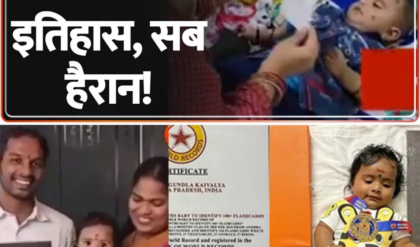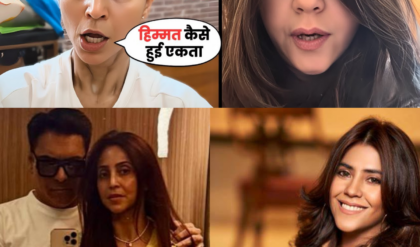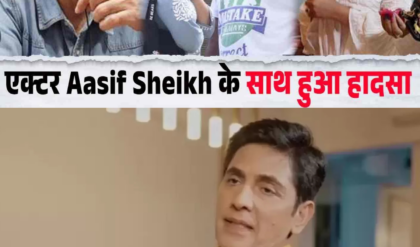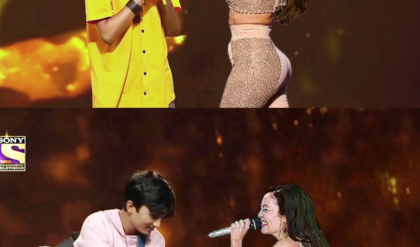Raashii Khanna : ‘I knew Karan Johar will NEVER give me content driven film!’ | The Sabarmati Report
.
.
Raashii Khanna: ‘I Knew Karan Johar Will NEVER Give Me Content-Driven Film!’ | The Sabarmati Report
In the ever-evolving world of Bollywood, where stardom and recognition often come with complex layers of glamour, audience perception, and behind-the-scenes politics, few stories stand out as much as Raashii Khanna’s candid remarks about her career trajectory and the challenges of finding meaningful roles.
One such statement that caught the public’s attention was her bold comment: “I knew Karan Johar will NEVER give me content-driven film!” This remark, made during an interview, gives a sharp insight into the actress’s frustration with the industry’s prevailing norms and the shifting dynamics of her own career.
In this feature, we will explore Raashii Khanna’s statement in the context of Bollywood’s commercial filmmaking and the growing demand for content-driven cinema.
The actress’ journey is a fascinating one, as she moved from South Indian cinema to making her mark in Hindi films, navigating a landscape where content is increasingly taking the front seat.
However, her observation about Karan Johar, who is known for producing mainstream, often star-driven blockbusters, offers a deeper reflection on the challenges faced by many actresses in securing roles that allow them to explore their craft beyond just commercial appeal.
The Bollywood Industry: A Commercial-Content Divide
To fully understand Raashii Khanna’s remark, it’s important to first unpack the dynamics of the Bollywood film industry. Bollywood has always been a blend of two key elements: commercial filmmaking and content-driven cinema.
The commercial side of the industry is often centered on big-budget productions with larger-than-life stories, flashy sets, and mainstream appeal.
Directors and producers like Karan Johar, Aditya Chopra, and others from established families have built massive empires on the success of such films, where star power often trumps the narrative.
In recent years, however, there has been a significant shift towards content-driven films, driven by both the changing tastes of the audience and the rise of digital platforms.
With the advent of OTT (over-the-top) platforms like Netflix, Amazon Prime Video, and Disney+ Hotstar, films with complex characters, socially relevant narratives, and fresh storylines have gained traction.
Directors like Anurag Kashyap, Zoya Akhtar, and Neeraj Ghaywan have led the charge for these films, creating opportunities for new talent, both in front and behind the camera.
This divide between the commercial and content-driven sectors has affected the way Bollywood stars and rising talent navigate their careers.
The struggle for an actress like Raashii Khanna, known for her performances in South Indian films and foraying into Bollywood, is not just about getting roles; it’s about finding roles that offer substantial depth and not merely cosmetic presence.
Raashii Khanna’s Career Trajectory
Raashii Khanna’s entry into Bollywood was somewhat gradual. After making her debut in Hindi cinema with Madras Café (2013), she transitioned into the South Indian film industry, where she became a well-known name in Tamil and Telugu cinema.
It was in these industries that she earned recognition for her acting skills and quickly established herself as a leading lady.
However, when Khanna set her sights on Bollywood, she faced the challenges common to many actresses from regional cinema: the struggle to break the mold of being typecast in commercial roles or in films with limited substance.
She went on to star in films like Phillauri (2017) and Titoo MBA (2018), but despite receiving some positive attention for her performances, she didn’t find herself being considered for films with the kind of roles that would truly test her acting mettle.
This brings us to her comment on Karan Johar. Khanna’s recognition of Johar’s brand of filmmaking – which often centers on star-studded ensembles and high-budget glamour rather than deeply content-driven stories – reflects a larger truth about the industry.
Johar’s Kuch Kuch Hota Hai (1998) or Kabhi Khushi Kabhie Gham (2001) may have been revolutionary in terms of their approach to family dramas, but they were never the kind of films that offered actresses substantial roles outside of the traditional romantic archetypes.
Johar’s more recent projects, such as Ae Dil Hai Mushkil (2016) and Student of the Year 2 (2019), while dealing with evolving themes, still focus more on the spectacle and star appeal rather than on content-driven storytelling.
The Karan Johar Factor
Karan Johar, as a filmmaker and producer, holds a special place in the Bollywood industry. He is often associated with the glitz and glamour of Hindi cinema, having successfully crafted films that are as much about the visual experience as they are about narrative.
Johar’s films are known for their larger-than-life portrayal of families, relationships, and high-society lifestyles. His casting choices, too, reflect the emphasis on big names and popular faces, making it difficult for many emerging actors or actresses from smaller films to secure a prominent position in his projects.
This brings us back to Raashii Khanna’s statement. When she says she “knew Karan Johar will never give me a content-driven film,” it suggests a certain level of self-awareness about the nature of Bollywood’s star system and her place within it.
Khanna is not just making a sweeping generalization but acknowledging the commercial machinery that defines Johar’s films.
She understands that a filmmaker of his stature is more likely to prioritize established stars and commercial success over taking risks on newer or unconventional talents for more content-centric roles.
In an industry that has long been governed by star power and box-office numbers, Khanna’s statement isn’t merely a critique but also an expression of frustration.
It’s the recognition of an industry where, for an actress like herself, landing a film that offers depth, emotional range, and significant screen time remains a distant dream unless one is fortunate enough to align with filmmakers who are breaking away from traditional models of filmmaking.
The Changing Landscape: New Opportunities for Content-Driven Cinema
Despite her frustration, Raashii Khanna’s observations also reflect a positive shift in the industry. Over the past decade, content-driven films have become increasingly popular, and there is a growing demand for stories that reflect real-life experiences, complex characters, and diverse perspectives.
Filmmakers who prioritize storytelling over star power have become the new vanguard of Bollywood. Films like Andhadhun (2018), Article 15 (2019), Badhaai Ho (2018), and Dangal (2016) have proven that audiences are willing to embrace films with strong narratives and performances, even if they don’t feature the biggest stars.
Moreover, the OTT revolution has further expanded the scope for new talent and content. The web series format, in particular, has been a game-changer, offering actors the chance to explore a wide range of characters in ways traditional Bollywood cinema may not allow.
For Raashii Khanna, who made her debut in the digital space with the series Rudra: The Edge of Darkness (2022), this is a space where her potential as an actress can shine through. OTT platforms, with their emphasis on diverse content, allow actors to take on roles that challenge their abilities and push creative boundaries.
Khanna’s transition into the digital space reflects the broader trend of Bollywood actresses expanding their horizons in search of more fulfilling roles.
With opportunities like these, actresses are no longer reliant on the handful of big-budget commercial films that have typically dominated the industry. Raashii Khanna’s entry into this space signals that the future of Bollywood may very well be more open to content-driven performances, irrespective of an actor’s initial star status.
Conclusion: Raashii Khanna’s Bold Stand
Raashii Khanna’s remark about Karan Johar is more than just an observation about her own career. It is a critique of the larger forces at play within the Bollywood film industry—where commercial interests often outweigh the creative risks required for producing truly content-driven films. Johar’s brand of cinema, while beloved by many, does not always offer opportunities for actors to showcase their full range of talent, especially when it comes to new faces from outside the mainstream.
However, Khanna’s insight into the challenges of carving a niche in the industry is also indicative of a larger, more hopeful shift. Bollywood’s landscape is gradually becoming more accepting of content-driven cinema, providing more nuanced roles for actresses who are willing to take risks and push their boundaries.
As OTT platforms continue to rise in prominence, actors like Khanna are finding more room to experiment and explore diverse narratives.
While Karan Johar may not be the filmmaker to offer Raashii Khanna the content-driven roles she desires, it is clear that the future of Indian cinema may well be defined by stories that place talent and storytelling at the forefront—rather than simply relying on star power and commercial appeal.
As Khanna continues her journey in Bollywood and beyond, she may very well become a symbol of the changing times, where content is king, and talent trumps all.
News
Scandalous! Celebrity Caught in a Shocking Incident with a Fan in Public!”
Shocking Incident Involving Kareena Kapoor: A Fan Misbehaves in Front of the Media In a deeply unsettling incident, Bollywood actress Kareena Kapoor Khan found herself at the center of an unexpected and distressing situation when a fan reportedly touched her…
End of content
No more pages to load






